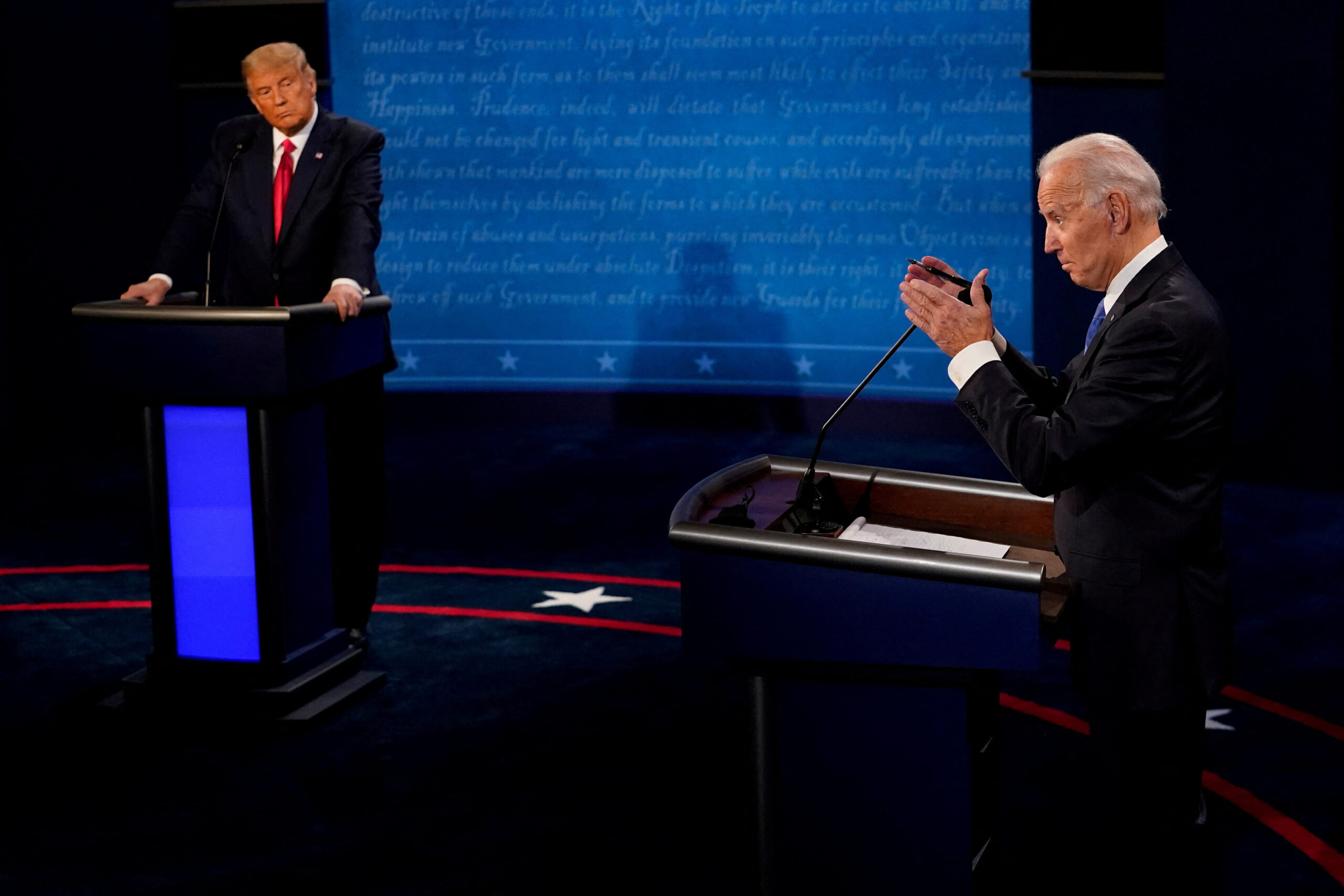NEW YORK – Investors watching the first live debate of the 2024 election race on Thursday hope to hear U.S. President Joe Biden and his predecessor Donald Trump argue thoughtful positions on fiscal policy, tariffs and taxes, while closely monitoring their mental acuity.
For the debate at CNN studios in Atlanta without an in-person audience, many on Wall Street are looking for the ageing candidates to prove they are sharp enough for four years in the White House.
Democrat Biden and Republican Trump are the oldest-ever major party White House contenders, noted TS Lombard managing director Grace Fan, who wrote that if either candidate seems less than capable it could “shake up a dead-heat race.”
“The nightmare scenario for investors would be if neither candidate seems up for the job,” said Robert Phipps, director at Per Stirling in Austin, Texas.
His concern is if Biden, 81, seems too old or “lethargic” or 78-year old Trump engages in “too many nonsensical rants.”
While markets tend to be politically indifferent according to Phipps, the big fear is change, which introduces uncertainty.
Jack Ablin, chief investment officer at Cresset Capital in Chicago wants to see “a rational inside-the-lines debate.”
“I’m not looking for drama,” said Ablin. “In many respects this debate personifies this country’s election process … If it’s just chaos and somebody walks off the stage and it just can’t be done, it sends a terrible message to the American people and the world.”
Wall Street especially wants to hear how Biden and Trump plan to deal with a stack of problems including a soaring budget deficit, high interest rates and slowing but still-high inflation as well as signs of economic slowing along with thorny trade relations with countries such as China.
Paul Christopher, head of global investment strategy at Wells Fargo Investment Institute, sees investors reacting best to measured plans for tackling these problems.
“In general the markets are looking for each candidate to come out reasonable and not extreme sounding,” said Christopher. “If the debate were to descend into personal acrimony that would be a bad sign for compromise and collaboration. Part of being capable of running the country is demonstrating a willingness to compromise with the other side.”
Both Biden and Trump have favored a tough trade stance by imposing and threatening tariffs, on China in particular. But investors are leery about the impact of tariffs on inflation.
“We’d expect the market to react positively if either candidate was to temper his enthusiasm for tariffs and trade restrictions, said Christopher.
Regarding fiscal policy Cresset’s Ablin notes that interest payments on U.S. borrowing is catching up with defense spending with $866 billion spent on defense in the 12 months through May versus $836 billion in interest payments.
He wants “one of the candidates to offer some leadership on fiscal responsibility and a recognition that our current fiscal spending path is unsustainable.”
The first debate, over five months before the election, may not move financial markets according to Carl Ludwigson, managing director at Bel Air Investment Advisors. At most, he said, a dominant candidate could start to move the odds of whether Republicans or Democrats win.
“In the first round or two of the fight nobody is going in for a knockout yet. They’re just trying to get the feel for the other boxer,” JJ Kinahan, CEO of brokerage IG North America said.
“The market’s going to be a very interested observer making sure neither one falls down in the first round. I don’t think you win the election in this debate but you could lose it. You could do more bad than good.”
Published byReuters Reuters on June 27
Zabih Ullah is a seasoned finance writer with more than ten years of experience. He is highly skilled at analyzing market trends, decoding economic data, and providing insightful commentary on various financial topics. Driven by his curiosity, Zabih stays updated with the latest developments in the finance industry, ensuring that his readers receive timely and relevant news and analysis. Read Full Bio










